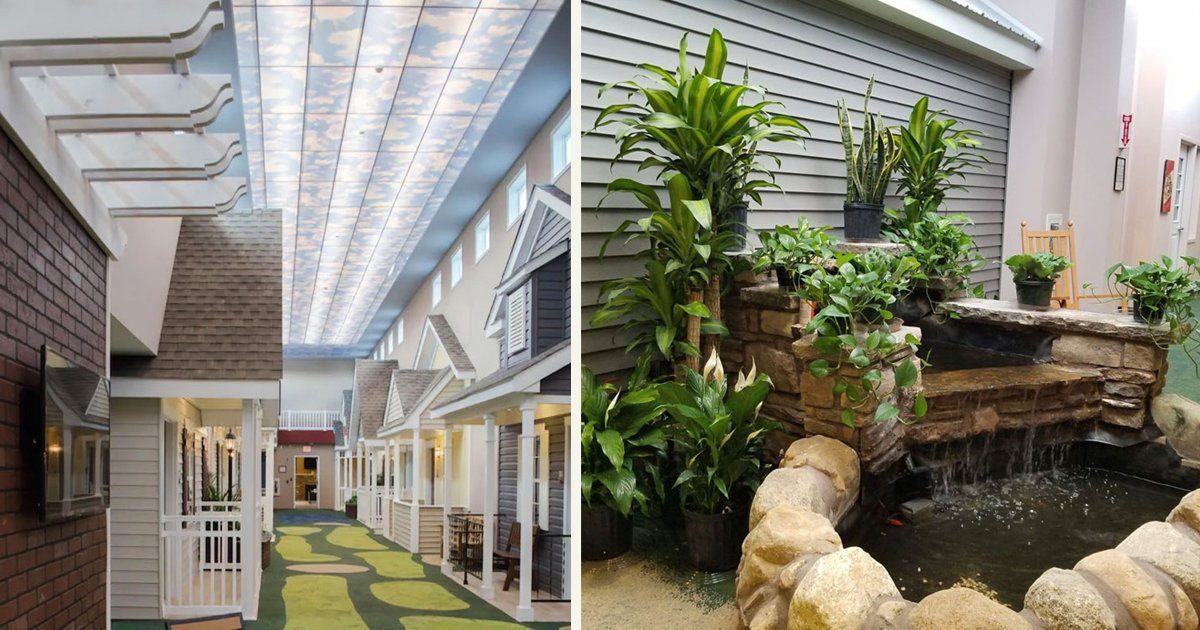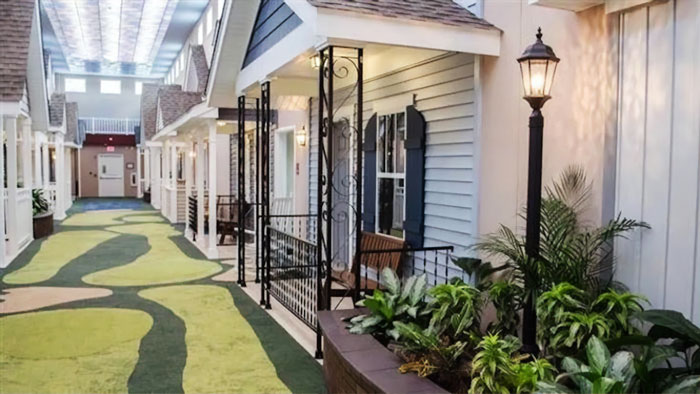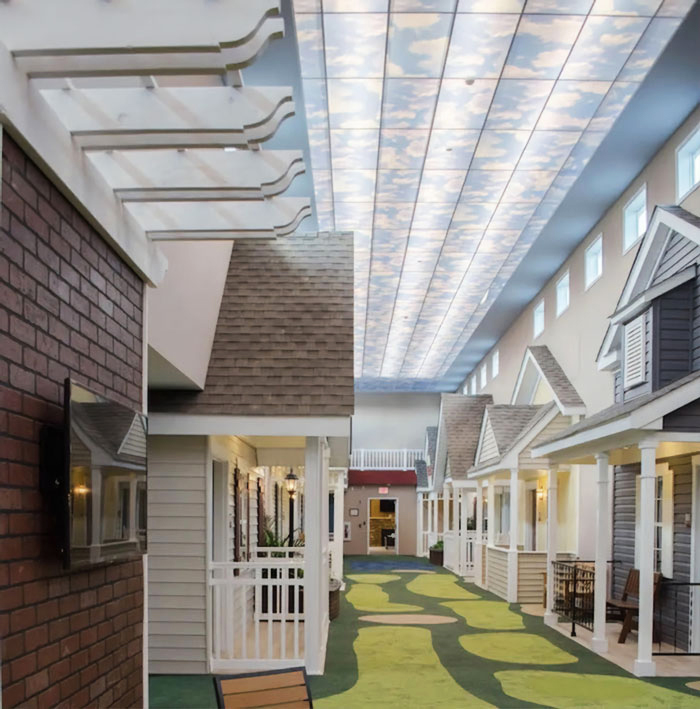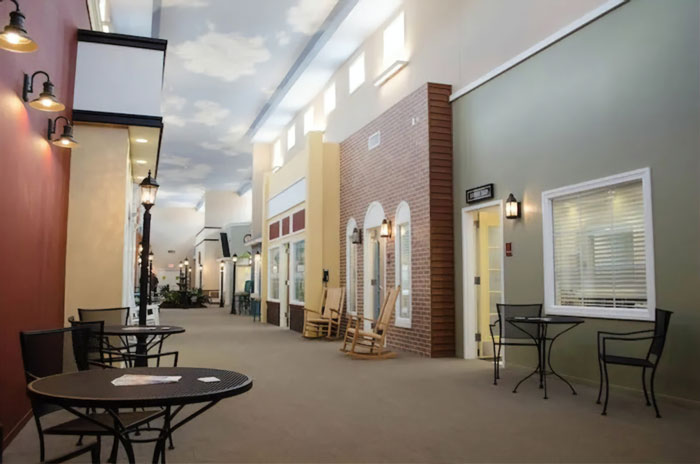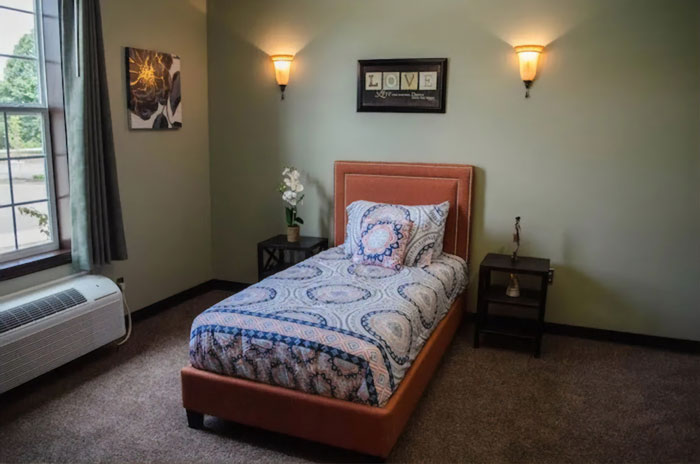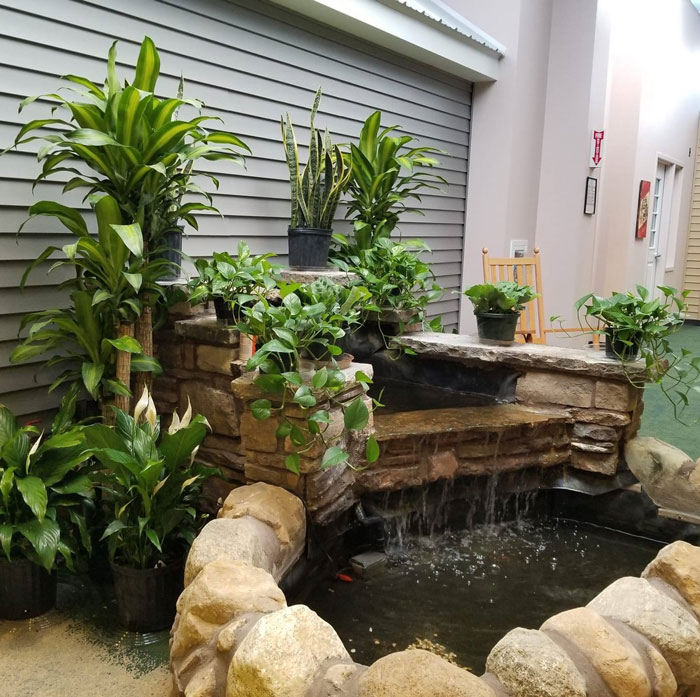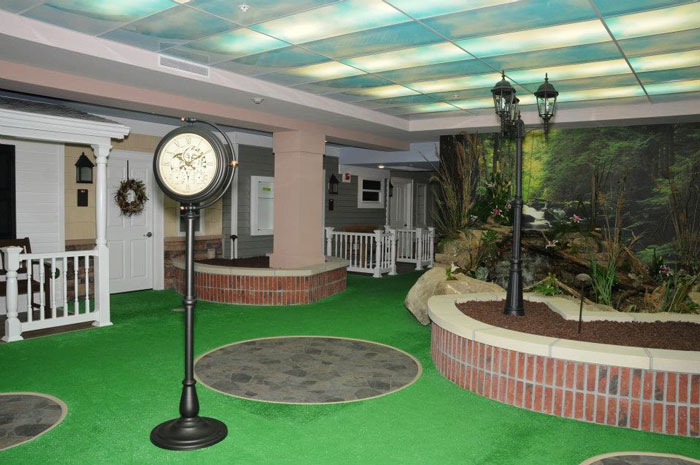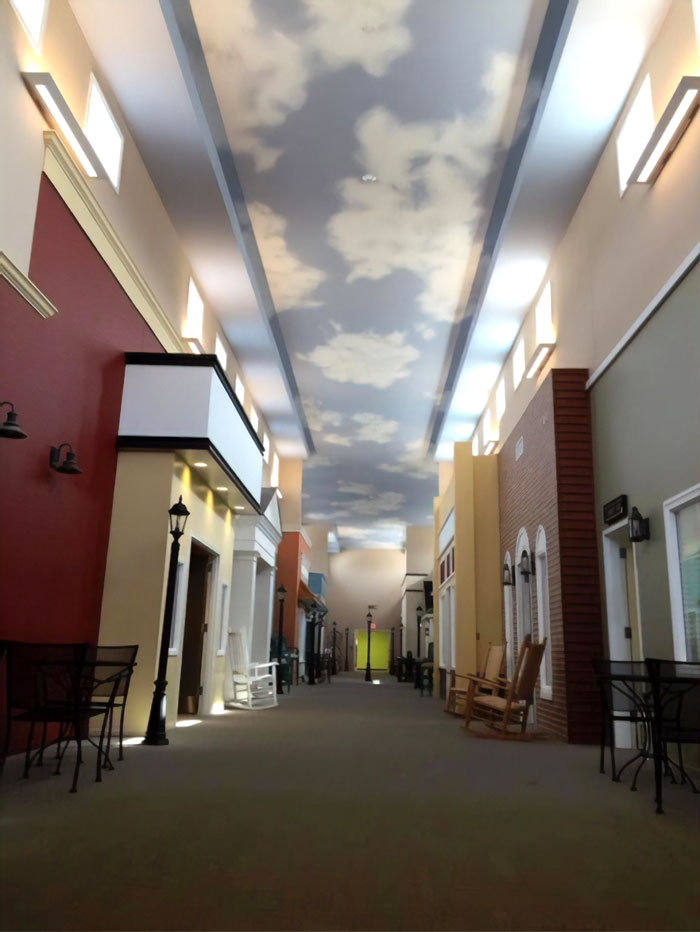None of us can say what life will give you in the future, or when we retire.
While many spend their golden years doing what they decided to do, but some aren’t so lucky. When we grow old, our body gets weak and the risk of physical as well as mental illness increases.
Some people get problems like Alzheimer’s or Dementia.
A nursing home in Ohio takes care of many elderly people that are suffering from memory problems. And the nursing home decided to rethink the traditional nursing home designs.
Lantern, a supported living facility in Ohio and a number of other locations around the US, renovated their indoor spaces to make them look like an authentic neighborhood.
The facility highlights living units that look like houses, equipped with porches and everything. There’s carpeting give the feel of grass, ceiling lighting that mimics a partly-cloudy sky, and other decorative elements like street lights and garden-like flora.
Bored Panda got in touch with Jean Makesh, the CEO of Lantern and the man behind this idea. He talks about the origins of this idea: “I simply wanted to address the pain. I always believed and to this day believe that if I don’t, who else will?”
He continued: “As an occupational therapist, a caregiver, a care provider, and a businessman, it is my responsibility to take care of my elderly clients and families.
The design I have in all my communities are influenced by the elderly clients that I served over time and serve now. I made a conscious and difficult decision to only listen to my elderly clients. They taught me everything I know today.”
Makesh explained that the environment helps in dealing with memory illness and other typical mental problems of the elderly years. Alzheimer’s patients, experience confusion problems in elderly homes, so creating a more familiar setting helps to alleviate their struggles.
“As an occupational therapist, I was trained to approach everything scientifically. I researched every concept to ensure that my designs were scientific and had elements of science to support everything that my elderly clients taught me,” explained Makesh.
We also asked Jean Makesh if the residents are allowed to put up their own decorations or to even have pets: “The space we live indirectly influences our overall health and wellness.
It is vital and important that the elderly could relate to their surroundings and their space—space breathes life into us. So, yes, they are welcomed to design their space to their will and desire. Pets and children breathe life into us as well and we encourage our elderly to bring pets if they desire so.
”
“The challenges and difficulties are plenty,” explains Makesh. “The biggest challenge is the lack of understanding of the disease and the elderly’s needs and preferences in general.
My staff and I cannot do it alone. It is important for families of the elderly to understand the disease process. It is critical for medical professionals and support staff to understand the disease process. Caring for one with the disease is a partnership with the family and medical professionals that are involved in the client’s care.
”
He continues: “The elderly client’s interests and needs should be the primary focus. Unfortunately, self-interest, ego, guilt, and a lack of understanding of the disease influence the elderly’s wellbeing. Dementia, and especially Alzheimer’s, not only affects the individual but also their family and friends.
The signs and symptoms are not consistent across patients. They vary from one individual to another. It is simply because all of our brains are wired differently.”
Recommended Video
“Grandpa With Dementia Remembers Perfect Harmonies To Favorite Hymn”
[rumble video_id=v18mob domain_id=u7nb2]


